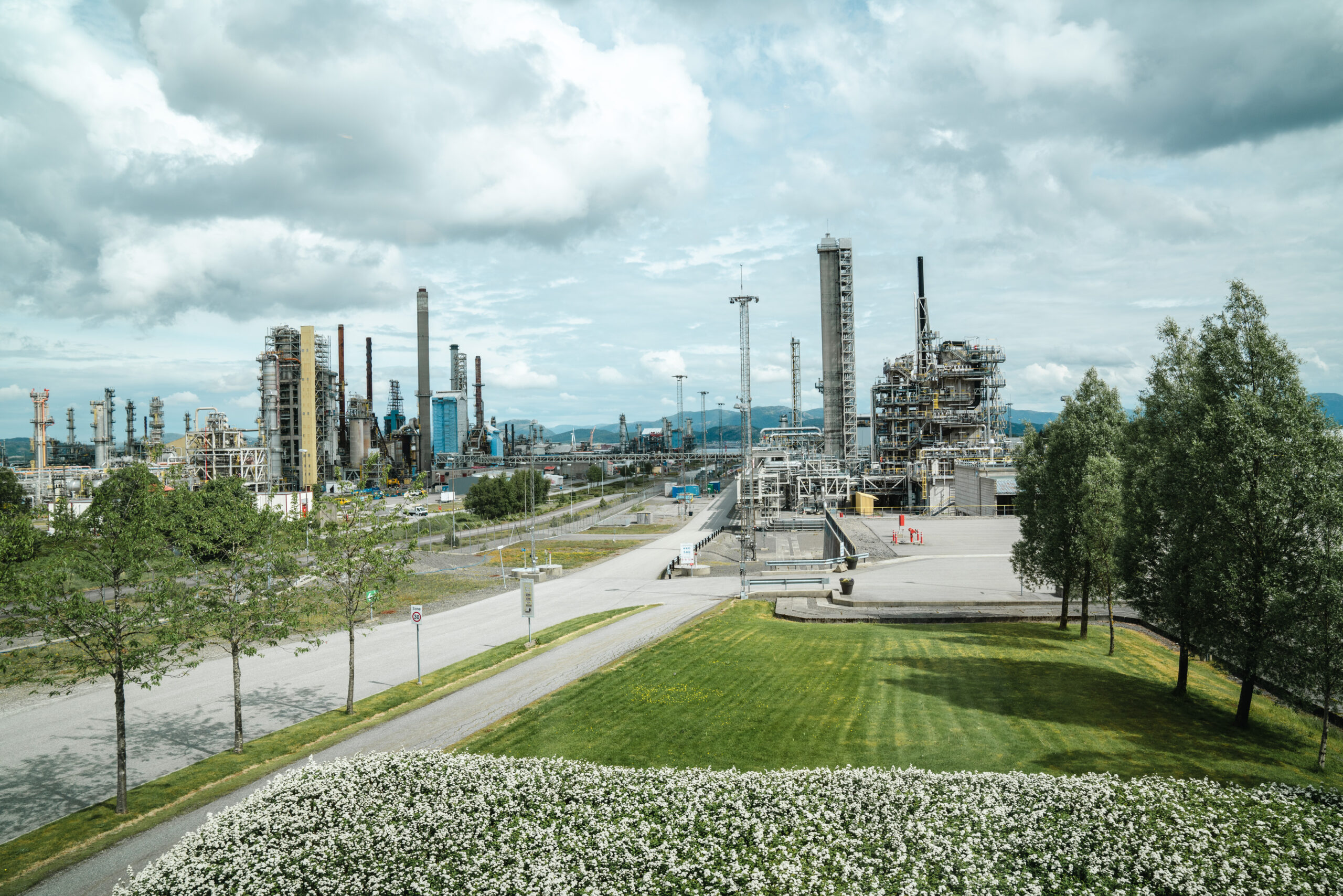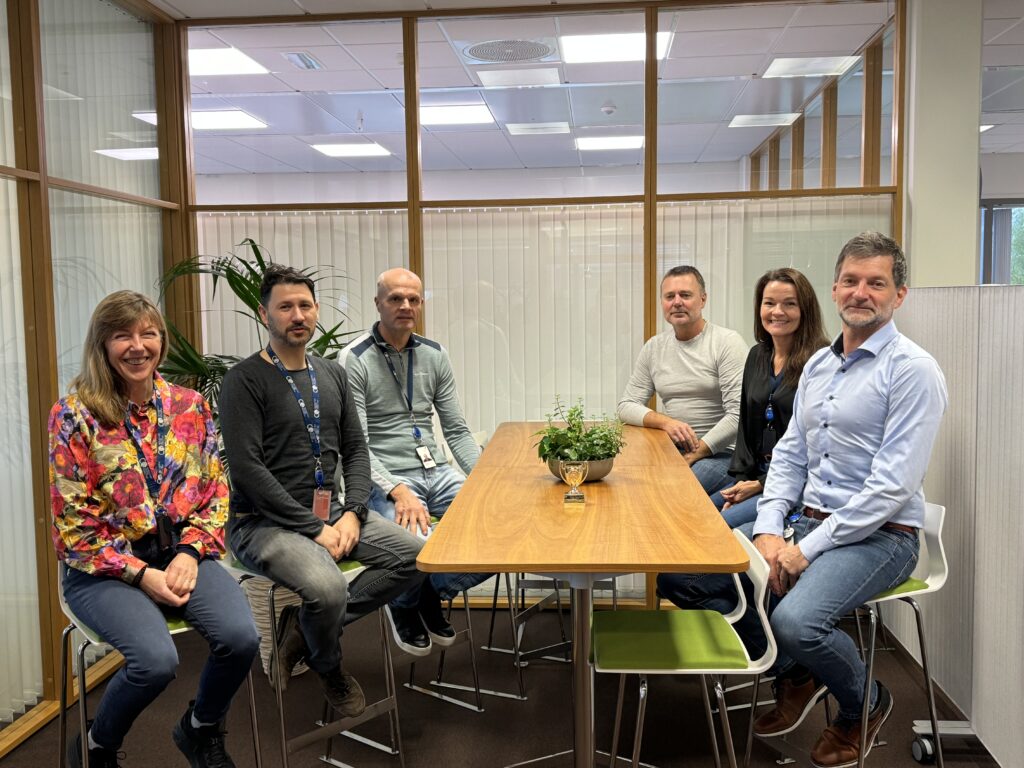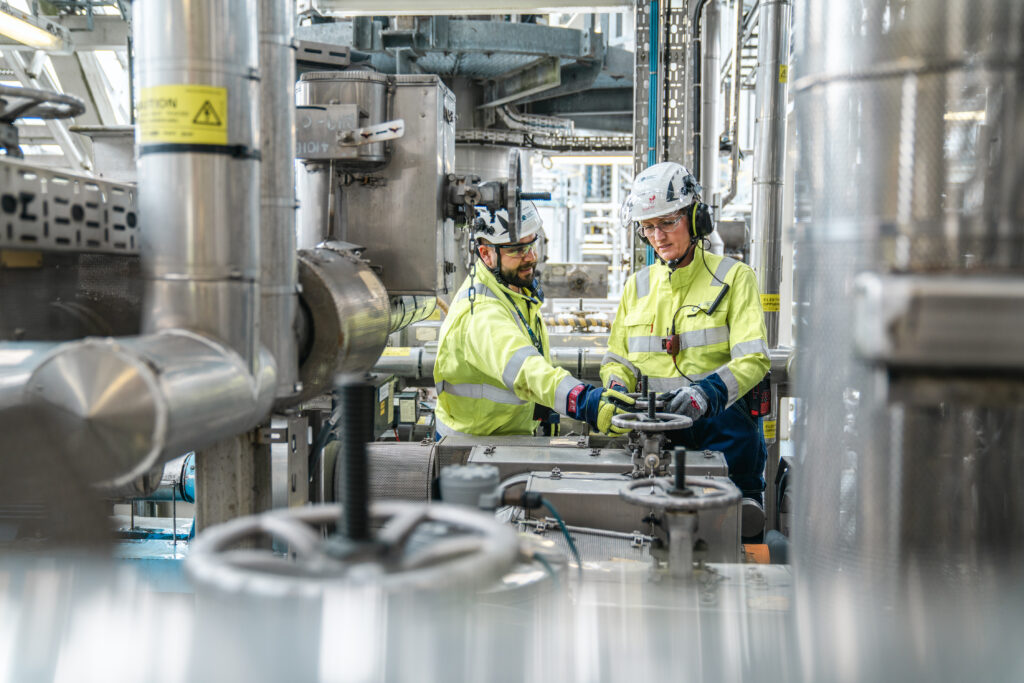
29.10.2024
“It’s all about the people”
“Modification is a small department with highly skilled people who rarely say “no” and often say “yes”.
The modification team have to rely largely on themselves to deal with the day-to-day challenges – because there aren’t many others to ask. But in my experience, when people are given responsibility, they step up. Leadership is about showing respect and trust!
The Modification Team

Kjetil Hantveit became head of the modification department at TCM in 2014. Prior to that, he had worked for almost ten years at Equinor on several large oil and gas projects in the North Sea and onshore, including the Mongstad refinery and the construction project for the new technology centre.
“I was used to having a large team of experts around me and knew that wouldn’t be the case at TCM. But I was intrigued by the many and varied technical challenges and the responsibility that comes with putting my name to the solutions that the team collectively decides are best for each operation or project.”
His team includes Magne Tresvik, an electrical engineer who, in addition to planning and installing all electrical systems, also ensures that documentation and drawings are kept up to date. Roger Solheim is the site supervisor who co-ordinates all modification work with the engineering and operations departments and analyses HSE risks. Istvan Szabo is a PDMS designer who continuously updates the plant’s 3D model to incorporate modifications using the Plant Design Management System (PDMS), now better known as E3D. These four form the core of Modifications. They also benefit greatly from the services of Elisabeth Nilsen as document controller and Jorunn Hovda, who works in finance and administration with budgeting and monitoring all orders and requisitions. The department also manages two people who work permanently at TCM with scaffolding and installation work.
“What sets this team apart is their extensive experience in knowing what’s needed to ensure that every test campaign planned at the Amine Plant and the site for Emerging Technologies can be carried out in accordance with the customer’s wishes and conditions. Among the employees, Istvan is the youngest, having started his career at TCM in 2015!”
“What is a typical working day like for you and your team?
“Typically, we receive proposals from the operations and engineering departments for changes that need to be made to the structures as part of a campaign. Our job is to evaluate possible improvements based on a study of the specific technology being tested, such as pipe dimensions and other technical issues that naturally arise. Our technical assessments lead to a solution, which is then estimated in terms of cost. Once the basis for modifications has been decided, our role is to ensure that the changes on paper are carried out on the plant. We make agreements with suppliers for welding and electrical work, and make sure they do what we’ve agreed. We then carry out tests before handing over the installations to operations. In addition, we maintain a dialogue with Business Development when potential customers have questions about what modifications are required for a possible technology test at TCM.
“How do you work with other departments at TCM?
“I can honestly say that we don’t face any challenges in terms of collaboration at TCM. We’re a small organisation with specialised expertise in CO2 capture, and we’re used to working across departments to solve problems that may arise in connection with a test campaign. The feedback we get from our customers shows that the team spirit at TCM is highly appreciated.
Two test campaigns have started at TCM this autumn: Honeywell at the amine plant and Svante at the Emerging Technologies site.
“How have these campaigns required adaptations or modifications to the facility to allow the customers to effectively test their technologies?”
“The Honeywell campaign involves the installation of new and better measuring equipment, which will remain permanently at the amine plant after the campaign. For Svante, we have been involved with their people in the assembly and installation of the modules that will be used and tested to ensure that they work as intended. I’m optimistic that these campaigns will go smoothly.
“TCM’s amine plant has been in operation since 2012. How are modification involved in the planning and implementation of technical upgrades to the plant?”
“Over the years, Modifications has played an active role, including the installation of a new filter (BD) in the plant to reduce the amount of particles in the flue gas. We’ve also made several improvements both inside and outside the absorber tower. We are currently working on a study of possible modifications to adapt the plant to the new composition of the flue gas we receive from the refinery’s heat plant”.

“How do you see new technologies contributing to more efficient operations in the coming years?
“For our part, we are already seeing the benefits of AI, for example in calculating the dimensions of equipment. However, we need to make sure that we, as humans, understand the basis for the results that appear on the PC, so that we don’t make bad investment decisions. We’ve also acquired equipment that allows us to visualise planned changes to the plant before they are physically made. So yes, we’re constantly adopting new technology to do the job better and with fewer people than before.
“TCM is in transition. How does this affect Modifications? Are you optimistic about the future?
“The work being done now to strengthen the sustainability of TCM’s operations is great – because with this transition we have all the conditions to continue as the world’s largest and most flexible CO2 capture test centre. Change has played a central role in the establishment of the Site for Emerging Technologies, and I believe we need to focus even more on becoming the site of choice for testing new and innovative capture methods. The expansion with new areas and increased capacity will provide plenty of work not only for us in Modifications, but for the whole of TCM. Most importantly, we must continue to be a company with great opportunities for professional development and a strong internal culture. Those of us who work at TCM are privileged, both because we do very important work and because the working environment is exceptionally good. This gives me confidence for the future!
